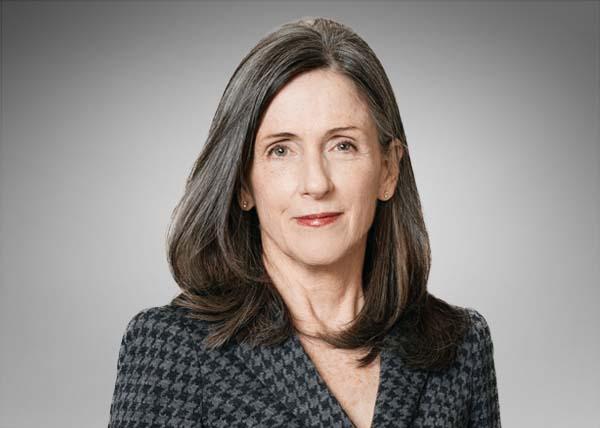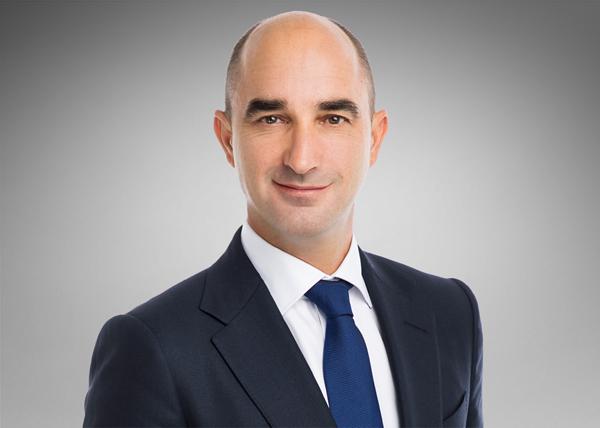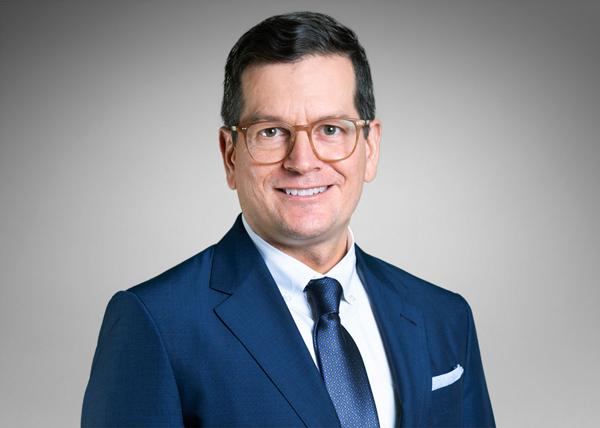World leaders, policymakers, activists, and corporate officials will gather in Dubai from November 30 to December 12 for the twenty-eighth United Nations Conference of Parties (“COP28”) amidst heightened geopolitical tensions. One of the centerpieces of COP28 will be the Global Stocktake (“GST”), an assessment process that concludes at COP28 designed to evaluate global progress towards achieving the multilateral climate goals established by the 2015 Paris Agreement.
The stakes of this COP could not be higher, with increasingly urgent calls for climate action to transform major elements of the global economy. As described by the Intergovernmental Panel on Climate Change, the worldwide frequency and severity of severe weather and climate events continues to increase. In 2023 to date, the United States alone has experienced at least twenty-four confirmed weather or climate disaster events with losses that exceeded $1 billion. Meanwhile, the recent Synthesis Report on the GST released by the United Nations Framework Convention on Climate Change (“UNFCCC”) noted that “[t]he window to keep limiting warming to 1.5 degrees Celsius is closing rapidly.” Secretary John Kerry, U.S. Special Presidential Envoy for Climate recently echoed this urgency, stating that near-term global action is necessary to reach net zero by 2050: “The decisive decade is now.”
Multilateral actions debated and adopted in the UNFCCC process have profound impacts on global business strategies. Accordingly, thousands of corporate leaders from across the globe will be present in Dubai seeking to engage with government delegates and representatives of civil society in efforts to shape and navigate the outcomes of the process. This post provides a primer on what key developments to watch for as prioritized action items at COP28.
Calls for stronger action on reducing emissions. In July 2023, Dr. Sultan Ahmed Al-Jaber, United Arab Emirates Special Envoy for Climate Change and COP28 President-Designate, sent a letter to parties outlining the agenda for COP28. This letter places mitigation and decarbonization efforts at the core of the COP. To limit global temperature rise to 1.5 degrees Celsius above preindustrial levels, the organizers call on state and industry partners to deliver an “ambitious energy package” that consists of the following six actions:
- Tripling renewable energy capacity and doubling the rate of energy efficiency improvements across sectors by 2030, including ramping up electrification and enhanced cooling approaches, to enable phase-down of fossil fuels.
- More than halving oil and gas industry scope 1 and 2 greenhouse gas (“GHG”) emissions, including reaching near-zero methane emissions by 2030.
- Transforming heavy-emitting sectors, including scaling up use of low-carbon hydrogen, carbon capture and storage, and carbon dioxide removal, aligned with science.
- Substantially shifting toward fossil-free forms of transport, including through vehicle electrification and modal shifts.
- Taking action to accelerate efforts towards the phasedown of unabated coal power and phase-out of inefficient fossil fuel subsidies, addressing coal-related methane emissions, and deploying clean baseload capacity.
- Setting increasingly ambitious goals, taking action, and remaining accountable through disclosures, in line with best practices and global standards.
Governments and business leaders have already begun implementing and responding to elements of this energy package. In early October, California Governor Gavin Newsom signed into law two bills, Senate Bill 253 and Senate Bill 261, that impose extensive climate-related disclosure obligations on thousands of public and private entities that operate in California. Our recent client alert summarizing the impact of these bills is here. These laws join the European Union’s Corporate Sustainability Reporting Directive (“CSRD”) in a growing ecosystem of global climate disclosure requirements. COP28 will provide an important venue for business leaders to interface with international policymakers as stakeholders seek to implement and affirm their renewable energy and net zero GHG emissions commitments.
Reactions to the Global Stocktake. Whether COP28 concludes with a global commitment to deliver this energy package will depend in part on how negotiators respond to the first global climate “report card”—the GST. Established by the Paris Agreement in 2015, the GST is an extensive assessment process designed to evaluate global progress towards climate goals, such as reducing GHG emissions, increasing adaptation and resilience efforts, and limiting the average global temperature to 1.5 degrees Celsius above preindustrial levels. This assessment is conducted by the UNFCCC across five years through a phased, participatory approach. During the first phase (begun in 2018), the GST solicited, assembled, and analyzed country-level information such as progress towards national GHG emissions reduction goals. In the second phase, the GST summarized this information along with recommendations for, and guidance on, future action into a Synthesis Report.
The third phase of the GST will conclude at COP28, where countries will use the report’s findings to establish new climate goals or reaffirm existing ones. While nearly all countries provided mitigation measures to reduce GHG emissions, the Synthesis Report declares that “much more ambition in action and support is needed” in implementing these measures to reach the goal of net zero carbon emissions by 2050 globally. In light of the GST, a key question for negotiators at COP28 will be whether to maintain and reaffirm the climate goals stated in the Paris Agreement or to call for more aggressive action to reduce GHG emissions.
Eyes on the energy industry. The Synthesis Report explicitly states that achieving net zero GHG emissions will require robust and meaningful mitigation efforts across all sectors, including scaling up renewable energy and phasing out fossil fuels. The actions of the fossil fuel industry will be critical in determining whether net zero is possible on the time scale set forth by the Paris Agreement. Dr. Fatih Birol, the Executive Director of the International Energy Agency, has called COP28 “a moment of truth” for the oil and gas industry. According to Dr. Birol, the industry not only has “the technologies, the money and the know-how to cut its emissions by 60% by 2030,” but it also has the responsibility to do so. A commitment to meaningful changes at COP28, Birol counsels, will secure the industry with a much-needed “new social license to operate” in the face of the increasingly adverse impacts of climate change.
The setting of COP28 in the UAE, a major oil-producing country, has heightened the focus on the energy industry. In particular, climate activists have voiced concerns about the host country’s close ties to fossil fuels, highlighting that COP28 President Al-Jaber is also the CEO of the state-run Abu Dhabi Oil Company, which produces over four million barrels of oil daily. Al-Jaber has been vocal, however, about the importance of accelerating the phase down of fossil fuels, and has encouraged oil and gas companies to show the world that they are “central to the solution” by committing to net zero methane emissions by 2030 and net zero GHG emissions by 2050.
Expanding climate financing. Alongside commitments to decarbonization, a key issue at COP28 will be the use and availability of public and private financing to push the energy transition forward, particularly in developing countries. The COP28 letter to parties encourages developed countries to replenish the Green Climate Fund, established in 2011 at COP17 to help fund clean energy and sustainable development projects in developing countries. It also calls on multilateral development banks, such as the World Bank and the African Development Bank, to catalyze the flow of private capital more effectively towards net zero projects.
Operationalizing the loss and damage fund. COP28 negotiators and activists will also discuss the future of the loss and damage fund. Established at COP27, the purpose of the loss and damage fund is to provide assistance for developing countries that are particularly vulnerable to the adverse effects of climate change in responding to economic and non-economic loss and damage. But COP27 left open critical questions on how the fund would be operationalized. In particular, the question of who is obligated to contribute to the fund and where the fund will be housed, will loom over the conference. Developed nations have objected to calls by developing nations to frame the loss and damage fund as “climate reparations,” claiming that the term is divisive and implies a legal responsibility to pay for global climate damage. And with less than one month before COP28, the transitional committee responsible for providing recommendations on where the fund should be housed is deadlocked, with developed nations calling for the fund to be located in the World Bank and developing nations preferring a standalone institution.
Focus on inclusivity. COP28 aims to center the human experience of climate change. The agenda for the conference calls for collaborative action and discussion on climate change adaption and resilience efforts, such as ecosystem preservation, food security, and relief. The agenda also puts strong emphasis on the importance of inclusion, calling for diverse and gender-balanced delegations that include youth, indigenous, and subnational representatives. Additionally, the organizers aim to increase youth participation and the involvement of mayors, parliamentarians, and local leaders in formal programming.
Rising climate litigation. COP28 also comes at a time of increasing litigation by parties seeking to curb GHG emissions, accelerate decarbonization efforts, and establish affirmative government obligations to mitigate climate change. According to the UN Environment Programme, the number of climate change court cases has more than doubled since 2017. In March 2023, the United Nations adopted a resolution requesting that the International Court of Justice provide an advisory opinion on the obligation of states to mitigate climate change under international law. If parties feel that COP28 results in insufficient substantive action, they may increasingly turn to the courts to spur decarbonization efforts.
Covington’s role at COP28. Covington attorneys have participated in many prior COPs, both in their former positions as government officials and as current advisors and counsel to a range of corporate clients on ESG matters. We are proud to continue that active COP engagement, with a number of Covington’s ESG attorneys from our offices across Europe and the U.S. attending COP28, joining our Dubai-based colleagues, where they will be speaking on a range of current climate matters. Our COP28 team will organize and facilitate a series of tailored discussions amongst corporate, government, and civil society leaders focused on how to achieve near-term climate commitments aligned with COP28 goals. In particular, our ESG experts will be engaging with corporate officials on such current ESG developments and challenges as meeting new multi-jurisdictional mandatory reporting guidelines, successfully implementing corporate carbon management and climate commitments, tapping new sources of international finance to spur the energy transition, including the IRA, and mitigating the potential for greenwashing claims and climate litigation. The Covington team will also provide regular update reports from COP28 to keep clients informed of key developments.
Our multidisciplinary delegation includes leaders of Covington’s ESG, Environment, Energy, Project Development and Finance, Corporate, and Public Policy practices, as well as our unique Climate Mitigation and Carbon Management (“CM2”) initiative. Our comprehensive and integrated global team is ready to assist clients as they prepare for COP28, engage with key stakeholders while there, and then strategize about and successfully implement ESG corporate policies aligned with COP28 goals.
If you have any questions concerning the material discussed in this client alert, please contact the members of our COP28 team.
Back
Back



















